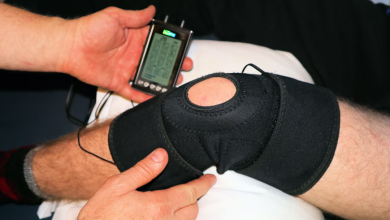Prescription errors: dealing with the effects and what you should do further

Medication errors are more common than you think, frequently occurring in clinics and hospitals all over the world. Given the large number of patients a physician sees daily, it is not difficult to imagine that sometimes the treatment schemes would get mixed up, and you may receive treatment not designated for your health problems. While in many cases, the harm to the patient is either minor or close to non-existent, there are also cases where incorrect medicine can have very detrimental health effects. If your well-being has been affected by improper medicine administration, continue reading to get a better idea of how you should proceed further.
Establish the problem
The umbrella term “prescription errors” encapsulates many different situations. You may have been prescribed medicine that has nothing to do with your health issues, or your doctor may have instructed you to take an incorrect treatment dosage. This can either delay your healing in case of a reduced dosage or potentially cause toxicity if too high. Moreover, a physician or pharmacist should be careful of any other treatment you’ll take simultaneously. Often, pharmaceuticals can interact with each other in negative ways. The pills can just cancel each other out and therefore no longer provide any benefits or cause you to experience unpleasant symptoms. This is why the ingredients must be considered in relation to anything else you are taking at the moment in order to avoid any damage to your health.
The duration and frequency for which you have to take the prescribed medication are also necessary. For example, in the case of infections, antibiotics should be administered for the appropriate period of time, and at predetermined times (every six or twelve hours), in order to have maximum efficiency and prevent a resurgence of the pathogen. Your medical practitioner also has a duty to inform you of the possible side effects of administering the medicine. While severe reactions tend to be rare, it’s good to be informed, especially if you have a history of allergic reactions or intolerances.
Get medical assistance
If you notice that taking the medication is affecting your health negatively, or if your healing process is stalling, stop taking the pills and schedule an appointment with the doctor as soon as you can. It’s important to explain that you’ve done everything as directed and that you’d like them to explain why your condition is not improving. A doctor can also help remedy the damage that has already occurred. Since you’re already in a vulnerable state, it’s important that the medical help is prompt and targets the problem to maximise efficiency.
If you have an allergic reaction to the medication, you must call the emergency service as soon as possible. Hypersensitivity to medicine can often have quite dramatic effects, resulting in extreme reactions and even anaphylactic shock, a potentially deadly complication. It’s always better to be safe rather than sorry, so call an ambulance if you develop allergic reaction symptoms such as swollen lips or face, a rash, or shortness of breath. It’s especially important to get swift medical attention if you’ve experienced allergic reaction episodes in the past, as you may be more susceptible to develop one again.
Make a claim
If your health has suffered as a result of an improper prescription, then you can make a legal claim against the negligence you were treated with. Any medical professional owes you, as their patient, a professional duty of care. If it is breached, and you suffer harm as a result, then you can be eligible for compensation. You can hire a medical claims lawyer in the UK who can provide you with impartial advice you can trust for free. Given the No Win No Fee agreement, you only pay any fees if your claim is successful and nothing otherwise.
Your solicitor will guide you into obtaining the evidence necessary for your case to stand a better chance in a court of law. Some of the items which can help strengthen your claim considerably include:
- Medical records: The records will present the treatment course and medication you received, including the dosage and administration frequency, in objective detail, being an important asset when your case is presented.
- Symptoms diary: You are likely to forget some of your symptoms along the way, so it’s vital to keep a journal in which you write them down as they appear. Make sure to include the dates and maybe even the rough time at which you’re writing, so the duration of the symptomatology can be determined more accurately.
Get time to recover
Dealing with injury or illness is uncomfortable enough as it is. You have to rearrange your entire routine to make up for your condition, and it can be frustrating having to change your routine and adapt to a new lifestyle until you’re completely healed. However, you may feel truly overwhelmed if you also have to deal with the unfortunate effects of an inappropriate treatment scheme, which can delay or even worsen your progress. This is normal, and it’s important to give yourself time to recover both physically and emotionally.
If you feel like you can’t tackle the issue on your own, you can also get help from a counsellor. They can assist you in making sense of your situation and overcoming it. You don’t have to struggle on your own, and if you feel like you’re stuck, you should get assistance from a psychologist as soon as possible. An affected mental state won’t help you achieve healing and may even hinder your progress. If you notice the tell-tale signs, such as the need to isolate yourself from others, mood changes, and difficulty focusing on tasks you used to perform quickly, you should consider seeking a counsellor.
It’s not easy dealing with medical negligence. While other forms of neglect, such as surgical errors, are usually more easily detectable, that doesn’t make inadequate medication schemes less troublesome. The effects can be rather dramatic, so you need to address the problem as soon as you discover it in order to start your path to recovery.














